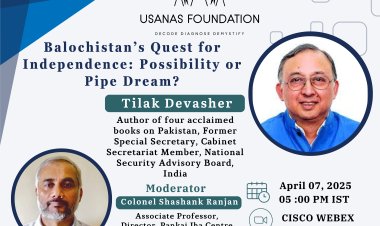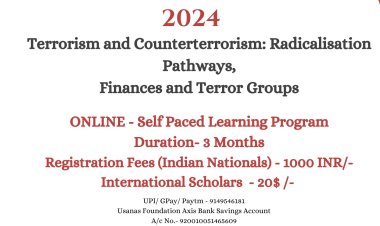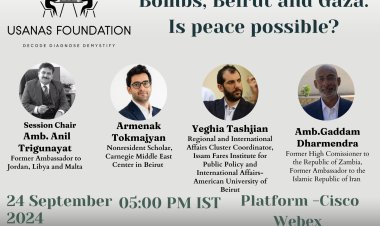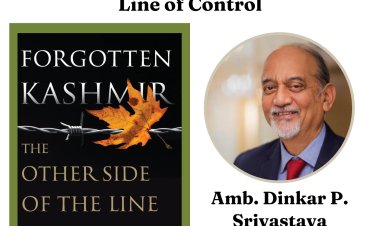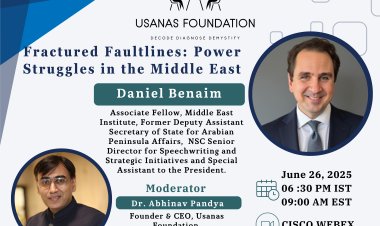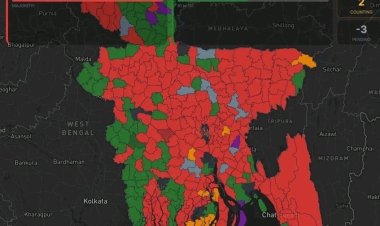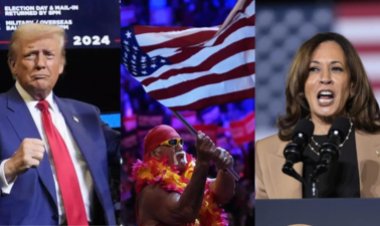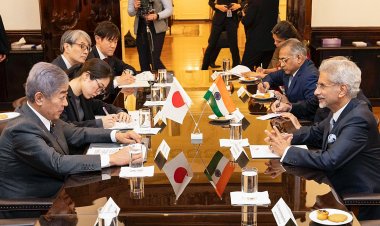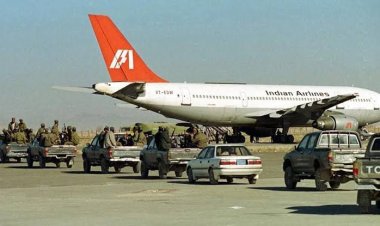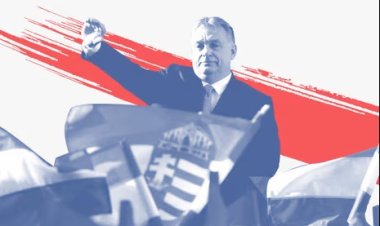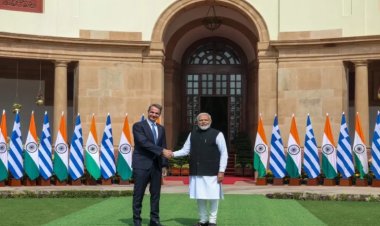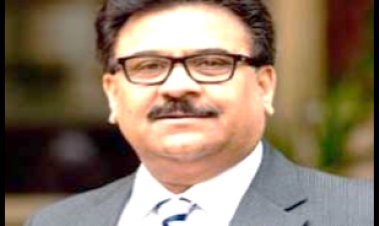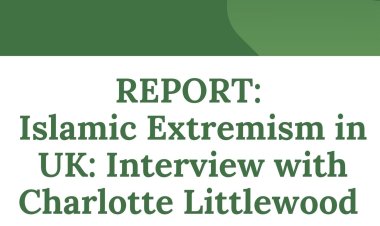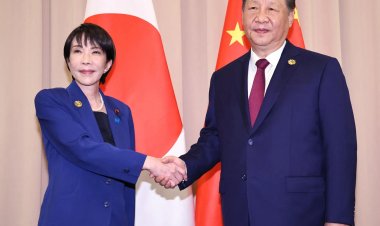Report: Russia-Ukraine Crisis, Floating Narratives, and the Roadmap for Peace
On April 6, Usanas Foundation organized an Interview on the Russia-Ukraine Crisis, Floating Narratives, and the Roadmap for Peace with Mr. Roman Babushkin, Deputy Chief of the Russian Mission in India. The interview was conducted by Arun Anand, Consulting Editor at Network18.
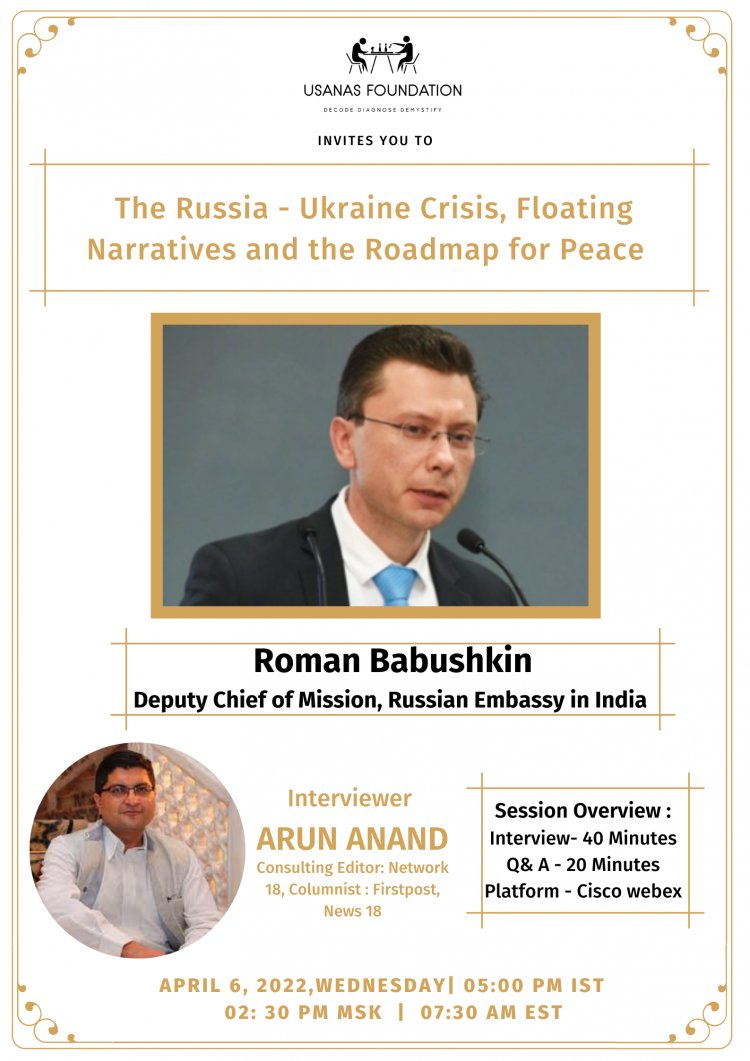
On April 6, Usanas Foundation organized an Interview on the Russia-Ukraine Crisis, Floating Narratives, and the Roadmap for Peace with Mr. Roman Babushkin, Deputy Chief of the Russian Mission in India. The interview was conducted by Arun Anand, Consulting Editor at Network18.
The transcript of the interview is as follows:
Arun Anand (AA): - How early do you see the war with Ukraine coming to an end? Is there any specific time frame and is it different from the earlier assessment which was made by the Russian Government?
Roman Babushkin (RB):- We are following the news and it is important that opinion comes from many sides and not just one side. There should be a balanced approach which is something that is missing when it comes to the conversation between Russian and Western countries. Russia feels involved with India because of the interest in details by the Indian side. It is not neutrality, this is a balanced approach of the Indian side that takes into consideration all the aspects of the meaning and that explains the positions which India is taking on the international arena in the United Nations and the security council, and other multilateral organizations. To answer your question, we wish to end this conflict as early as possible and we never wanted this conflict to happen. To realize this conflict from today's perspective, we need to get into some history because actually, it didn't happen overnight. So, it was preceded by the sequence of events that started with the anti-constitutional coup in Kyiv, supported by the west. When anti- Russian regime came to power and started the policy of extermination of everything which was linked to Russia starting from the Russian language which was prohibited in Ukraine. It was prohibited by law and the people who were Russian-speaking people who didn't agree with this anti-constitutional coup were targeted. The special military operation conducted by Russia is aimed to ensure security and save the life of all these people. The Donbas region which was divided into two republics that were on the 21st of February recognized as an independent republic by Russia has lost about 14, 000 people during all these events without any reaction from the western side. We want this operation to be completed as early as possible but certainly, until the goals of this operation are achieved the military operation will continue. We need to ensure the long-term perspective, undivided security guarantees for everyone in Europe including Ukraine, Russia including Donbas region, and European states that is something which we were asking for many years until we're not heard. So for this, it needs to be ensured that Ukraine remains neutral, has non-nuclear power, does not join any military blocks and not deploys foreign weapons, and does not conduct international military exercises on its territory. We will work on that as long as it takes. A special military operation is moving not as fast as one could expect it because the Russian army is not targeting the civilian infrastructure and targeting only the military infrastructure of the Ukrainian army and precise weapons are used for this purpose. The second reason why it is seemingly strong is that the west is continuing to support Ukraine militarily sending more and more troops there and that complicates the situation and the negotiation process. We are quite determined to achieve the goals which were established by the president.
AA: - A lot of international sanctions have been imposed on Russia. So what has been the impact of these sanctions and how do you see the impact of these sanctions panning there is also a theory that these sanctions are impacting Russia as much as it is attracting the west also those who have imposed it.
RB:- Russia has been sanctioned for many years already. So we get used to the institution but the sanctions don't work that is a clear message. Unilateral sanctions are the cost of independence and sovereignty. They are illegitimately imposed without any solid reasons whatever Russia is blamed for is based on assumptions and public opinion shaped in the west. The west is refusing not only to accept the Russian proposals for these professional investigations. It is not only the Russian proposals that are rejected. International conventions are the priority that is being targeted by the west. So Russia was sanctioned unilaterally and that is an obvious question what are the values of the so-called civilized west. They need just a pretext for sanction to get rid of a strong competitor which doesn't accept the western hegemony. It is very clear that sanctions don't change the policy and do not support resolving crises but lead to global economic instability and undermined the credibility of the western financial system and particularly the western currencies. That's why it is an obvious decision of the Russian leadership and other allied countries to expand using national currencies in our bilateral trades.
AA:- We have seen in the United Nations also that when it came to the resolution related to this situation. So Russia seems to be having much lesser number of allies and appears to be kind of physically isolated in this whole situation whether it is deliberate or whether it is an outcome of the geostatic situation. So, who are your allies in this war, and would you like to comment on this issue?
RB:- It is a globalized world and it's a utopian idea to isolate any country. It is very helpful that independent states like India, China, and others are following their irrevocable choice for multi-polarity. We are ready to work with everyone based on equality, mutual benefit, and respect. and we see that there are still many partners who are willing to collaborate with Russia. Russia is open to such cooperation and at the same time, we see how big the pressure is imposed by the west on those who are not willing to follow this unipolar world. It is the case for the international organizations where even in some sectoral wise international organizations, the western countries are initiating the anti-Russian decisions and based on these pretexts without proper respect for the rules of procedure. So they push forward and take the majority of votes against Russia even trying to expel Russia from these international organizations. But we are confident that some proper understanding could come to the international community that it is not the way the international relations should be conducted. So, we are working with everyone, we are working with our partners in Asia and we are still open to dialogue with the European partners although it is quite difficult these days. Since they are preoccupied with the same sanctions but we are quite confident that we will not be isolated. We are also approaching our partners and trying to explain what is the real situation. There is tremendous pressure on almost all of the world to take a position as a black and white picture but it's much more complicated. There are two things when it comes to voting in international organizations, especially the united nations. The first is voting and the second is explanatory notification so it’s about the motives of the voting.
AA:- What is the possibility of the use of nuclear weapons by Russia in this conflict?
RB:- This is a hopefully unlikely scenario. It was not Russia that started talking about such kind of possibility. First, we had heard about that from president Zielinski at the Munich conference who clearly said that he wants to withdraw from the Budapest agreement. When it was the Soviet Union there are a lot of industrial facilities that were still there in Ukraine which is capable to produce necessary equipment and industry materials to relaunch its nuclear industry so that is again one of the purposes of this special military preparation to avoid such scenario. Russia has got its nuclear doctrine which clearly says that nuclear weapons are a tool of deterrence and as a responsible nuclear power, we realize our responsibility for maintaining strategic stability and how important it is to take stringent control over the nuclear weapons facilities and the decision-making process. So, it's not our choice to come to this point.
AA:- So how do you look at the global media coverage of this war and any biases you would like to point out, especially in the latest context of the small town of Bucha.
RB:- Russia is looking at the media coverage from the very beginning, not this day, not the recent months, not the previous month or something in previous years. The western side was intentionally one-sided. They didn't intend to listen to us. They even came to the point where they prohibited the Russian media outlets from working in Europe and the western countries. As far as Indian media is concerned well we can understand how big the influence of the western media is here in India and certainly we feel the lack of other sources of information. So we are trying to balance it by working very hard in the immediate domain here. We are enjoying the freedom of speech that India is following and this is a good example. So when it comes to the so-called war crimes in Ukraine which Russia is blamed there is no investigation, no proof just a one-sided approach. There are a lot of misgivings whenever the western partners are trying to describe the situation. When it comes to the atrocities which are committed by the Ukrainian forces everyone keeps silent. Some extreme nationalists are doing their job so they are using human shields, they are hiding in the schools, and living areas which it becomes difficult to attack from the Russian side because we don't intend to harm the civilians. when it comes to further back to the massive disinformation campaign against Russia. This is an information war that Russia is facing and this is a problem that happens on a routine basis. So yes they need some pictures which would persuade the rest of the world about what happened and that's how they don't need anything else.
AA:- Do you think that there has to be some global regime of checks and balances as far as the information flow and dissemination are concerned?
RB:- How can Russia deliver this information when the Russian media outlets are prohibited and the people don't have access to this information. There are plenty of materials published on the Russian official websites like Minister of foreign affairs, and Kremlin. There is a must-have DDoS attack against this website. we have some problems accessing the Kremlin website. It was an information war and I agree that Russia is losing this information because we don't have such expertise, experience, and technologies as the West is dominating in all this in our mainstream media. We are at the same time you know quite active in the Indian media domain. We are also publishing a lot of things and our information resources are approaching the experts and expert centers. I should be very grateful for your program for your initiative to talk about that so that we could discuss it in more detail so that probably our conversation would really be you know circulated or maybe some hurt by those who are interested.
AA:- There are thousands of Indian students who were studying in Ukraine and now it doesn't seem that in near future they'll be able to complete their education. Do you think that is anything categorical you would like to say or share about those Indian students who left their studies in between after the conflict in Ukraine?
RB:- This is a quiet situation where Russia is also trying to offer its services to the Indian students who had to leave Ukraine and stop their studies. The advantages in this situation that the programs are in many cases are coinciding quite a similar and we are working with the specialized student associations and delivering this message that it is possible and probably case-by-case basis. There is some explanation required in terms of payments because Russia is isolated from the western financial system. Russia is very flexible in this regard. The Russian universities are ready to receive these students. There is a conversation on the proper level and between the organizations involved about how can we ensure that. There is a big humanitarian component and certainly, we would be glad to support these students so that they could get the proper education and continue their professional life and linked to this religion either via. Russia or Ukraine because we have a lot of opportunities linked to the Russian language. Since the western companies are withdrawing from the Russian market so there are huge vacant places to be offered to the Indian companies to come to this market and expand their business presence. It is a very favorable opportunity for the Indian people.
This was followed by an interactive session between Mr. Roman Babushkin and the members of the audience. Mr. Abhinav Pandya, CEO, and Founder, Usanas Foundation delivered the closing remarks and thanked Mr. Babushkin for his time and valuable insights.
Disclaimer: All opinions expressed in the Interview belong to the speakers and are not reflective of Usanas Foundation

